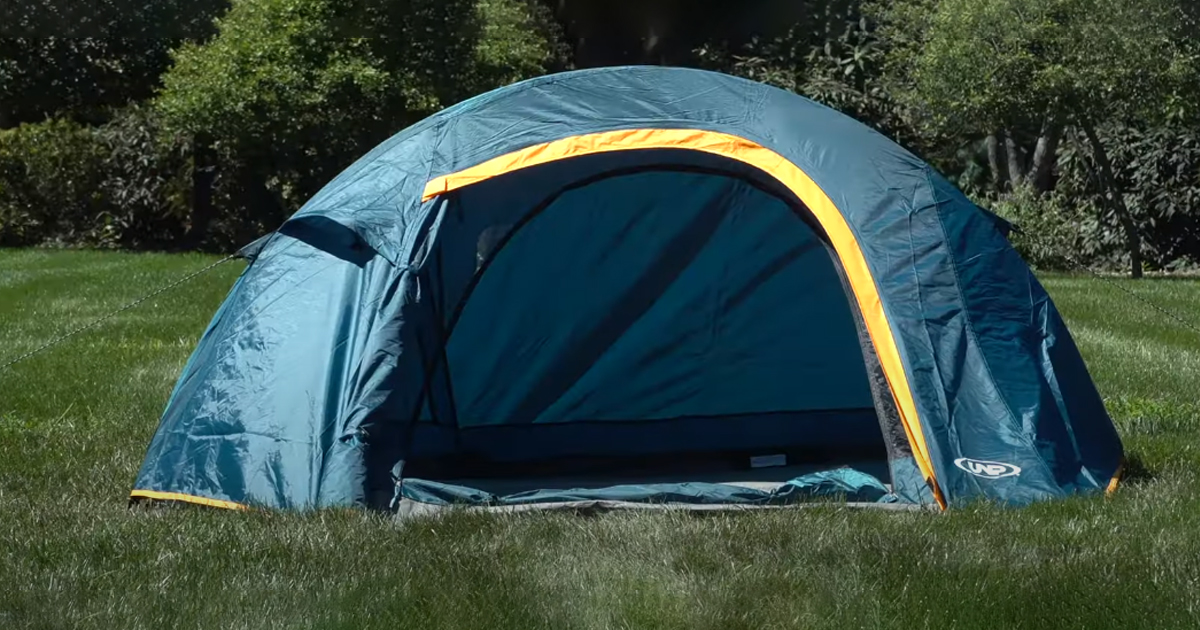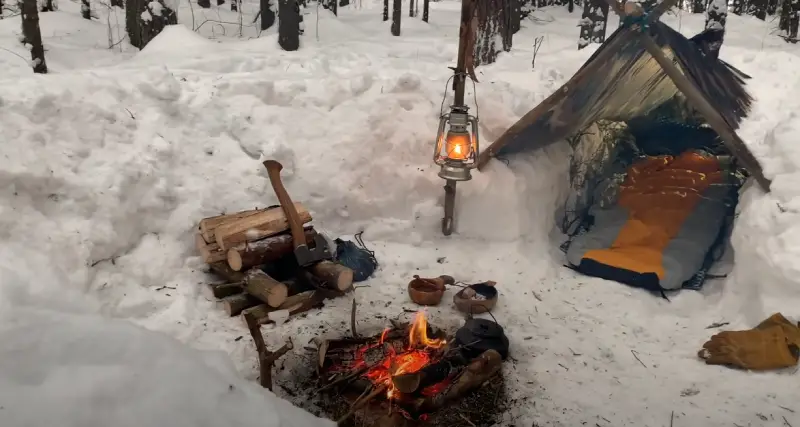Is Tent Camping Safe: 18 Safety Tips & 3 Biggest Risks
Adventures outdoors come with risks and challenges. There’s much to be cautious about, from minor injuries and dangerous wildlife encounters to unpredictable weather and hazardous plants. Insects can also pose a threat. It’s important to stay vigilant and prepared while enjoying nature.
Tent camping is safe for me and my pets. I used to worry about wild animals when I first started camping and backpacking. There is certainly a risk associated with camping, but you’re unlikely to get into trouble.
I will share a few simple tips for staying safe while tent camping, from selecting the right sleeping gear to packing food and drinks to the risks I faced when tenting.
Is Tent Camping Safe: 18 Safety Tips
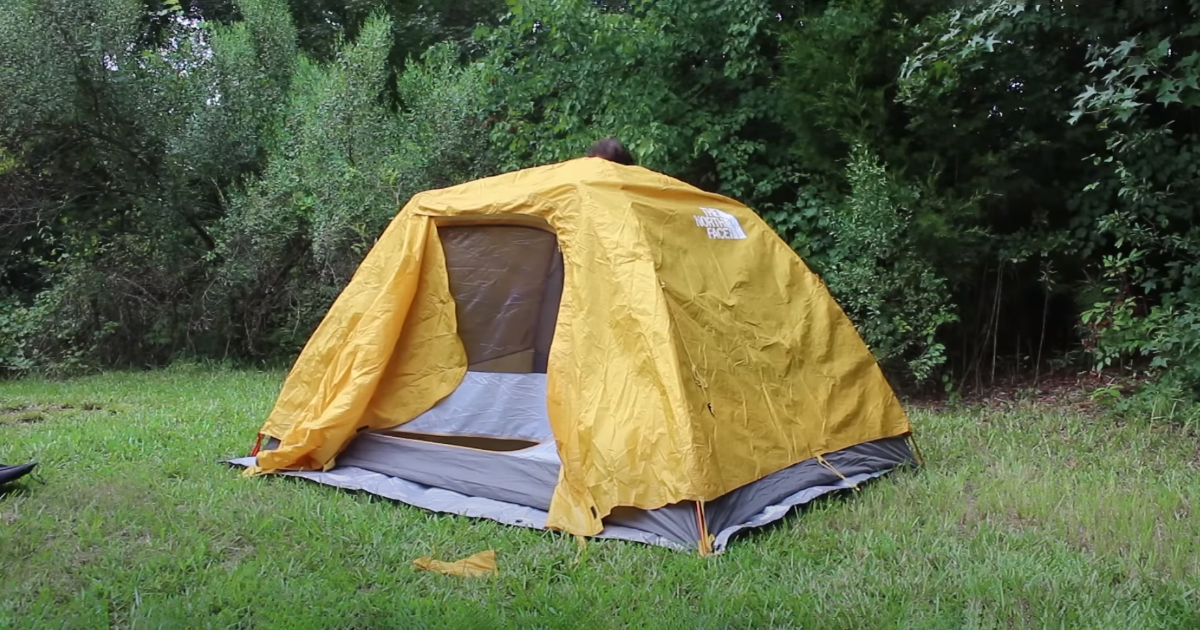
I have always enjoyed the excitement and adventure of spending the night in a tent surrounded by nature. Safety is always a top concern, and it’s essential to take precautions to ensure that tent camping is safe. I will share some tips to provide a safe and enjoyable tent camping experience.
- Use a Tent Lock: I used a tent lock to keep my and my pet’s belongings safe. This simple device prevented unwanted access to my tent while I was away, giving me peace of mind and helping to deter theft.
- Familiarize the Pet with the Outdoors: If you’re planning to bring your beloved pet with you on a camping trip, it’s crucial to guarantee their comfort and safety. Consider buying a pet tent, such as MY PET TENT, to give your furry friend a cozy place to unwind. If your dog has a habit of chasing wildlife, it’s advisable to keep them supervised and close by, particularly at night.
- Choose a Safe Campsite: I chose a safe campsite, looking for campsites that had good lighting, were well-maintained, and offered designated areas for camping. I avoided camps near cliffs, steep drop-offs, or sites prone to flooding.
- Monitor the Weather: I monitored the weather as conditions could transform. I was prepared with gear and clothing.
- Safely Store Food: I stored my food safely to avoid attracting wild animals to my campsite. I placed all the food in sealed containers in a lockable cooler or storage container.
- Don’t forget to leash and tag your pet: Ahead of my departure, I packed a 36-foot rope for my little cat. Such a leash allowed her to explore the surroundings with a bit of freedom, much like me. My pet cat was also fitted with a tag that had a micro-chipped tracker. That way, my little friend will freely explore the campsite, stray a little, and still be within my vicinity.
- Campfire Safety: I followed all fire safety rules and kept a bucket of water or fire extinguisher nearby in an emergency. Campfires were integral to the camping experience but could be dangerous if improperly handled.
- Safety in Numbers: I found that camping with others was a great way to stay safe. We stuck together and kept an eye out for each other, especially during activities like hiking or exploring.
- Monitor Your Campsite: I monitored my campsite for suspicious activity or unusual behavior. I knew my surroundings and reported any suspicious behavior to camp officials.
- Know Thy Neighbors: I got to know my neighboring campers and made connections. I introduced myself and asked for help if needed. Building a rapport with my fellow campers added an extra layer of security to my camping experience.
- Hydration is Important: I stayed hydrated during my camping trip. I brought plenty of water and drank it regularly, even if I didn’t feel thirsty.
- Bring Insect Repellent: I used insect repellent, wore long pants and sleeves, and avoided areas with standing water to reduce my risk of insect bites. Insects could be nuisances and transmit diseases like Lyme or West Nile Virus.
- Forest Fires: I follow all fire safety rules and know of any fire restrictions in the area. I always had water or a fire extinguisher nearby and never left a fire unattended. Forest fires could be devastating.
- Wild Animals: I took proper precautions to avoid encounters with wild animals. I stored food properly, avoided approaching wildlife, and never fed or provoked animals.
- Bring Protection: I carried protection, such as mace or a whistle, which enhanced my safety during my camping trip. These items helped me defend myself if needed or signal for help in an emergency.
- Be Aware Of Allergies: Prepare for any unexpected encounters by packing an EpiPen or other medications for your allergies. Also, keep a first aid kit on hand and monitor your condition for dizziness, labored breathing, and swelling after contact with plants or insects.
- Watch out for Poisonous Plants: You should know what’s growing around your campsite since some plants can be poisonous if eaten. Avoid plants if you have any doubts about their safety.
- Don’t hike Alone: Bring them along if you intend to walk with a friend or family member. If you get lost or get hurt, hiking alone can be dangerous.
3 Biggest Tent Camping Risks I Faced
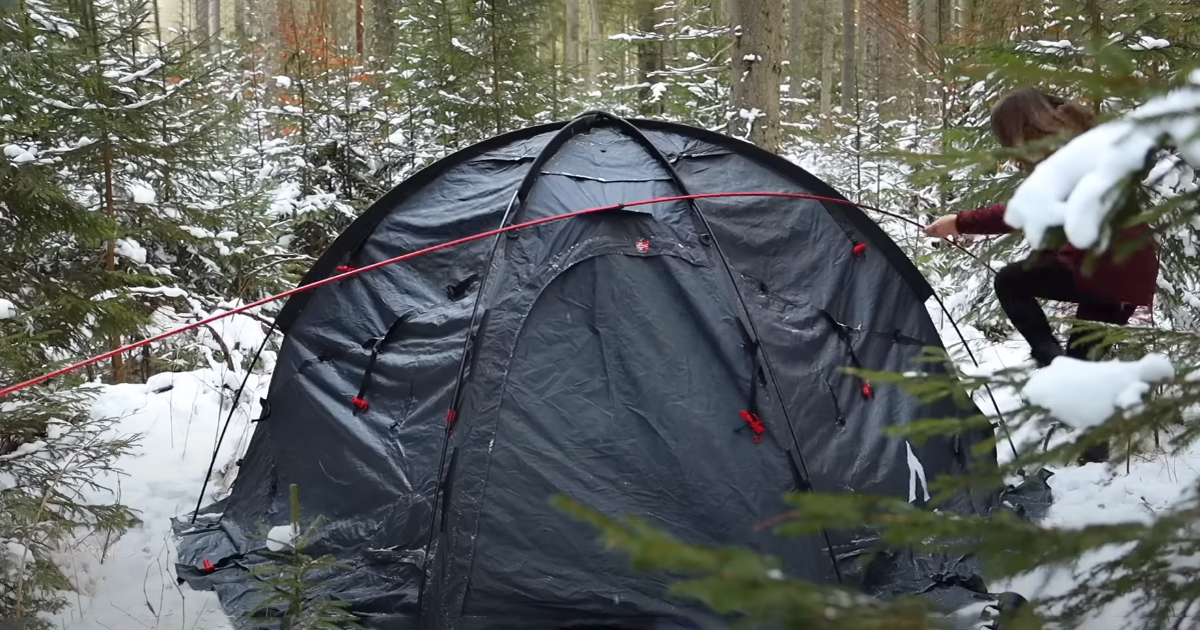
Many people plan their next camping trip. The exhilaration of spending time in the great outdoors is unmatched, but it is essential to remember that camping comes with its risks. I will explore the various dangers associated with tent camping:
Weather
The weather was the most significant risk factor for camping. Even when the forecast seemed perfect, sudden changes in temperature occurred, posing severe threats to me.
Strong winds knocked down trees and damaged my tent, while heavy rains caused flash floods. Thunderstorms and lightning were also very dangerous.
- The weather forecast was always checked before I left for my trip.
- My rain gear included rain boots and a waterproof jacket.
- I chose a campsite not at the bottom of a hill or in a low-lying area prone to flash flooding.
- I stayed updated on weather reports during my trip and was prepared to seek shelter if necessary.
Snow
Depending on where I was camping, snow was a potential risk. I ensured I had the proper gear to stay warm and dry if snow was expected.
- My luggage contained several warm clothes and a sleeping bag suitable for cold weather.
- I brought plenty of extra blankets and hand warmers to keep warm.
- My initial consideration was to bring a portable heater if it was allowed.
Rain
Rain twisted my camping trip into a soggy mess. It caused flooding, made it difficult to start a fire, and ruined my gear.
- My tents, tarps, and groundsheets are all waterproof.
- The gear and food I kept in waterproof containers were waterproof.
- I ensured I had a proper rain fly for my tent, covering the entire tent.
Lightning
The National Weather Service says there are 25 million lightning strikes annually in the United States. Lightning was a severe threat to campers like me, so knowing how to stay safe was essential.
- While a thunderstorm was in progress, I avoided tall trees and open areas.
- My car or a sturdy building provided shelter.
- My strategy was to get low if no shelter was available and avoid tall objects.
- I stayed away from water sources during a thunderstorm.
Animals
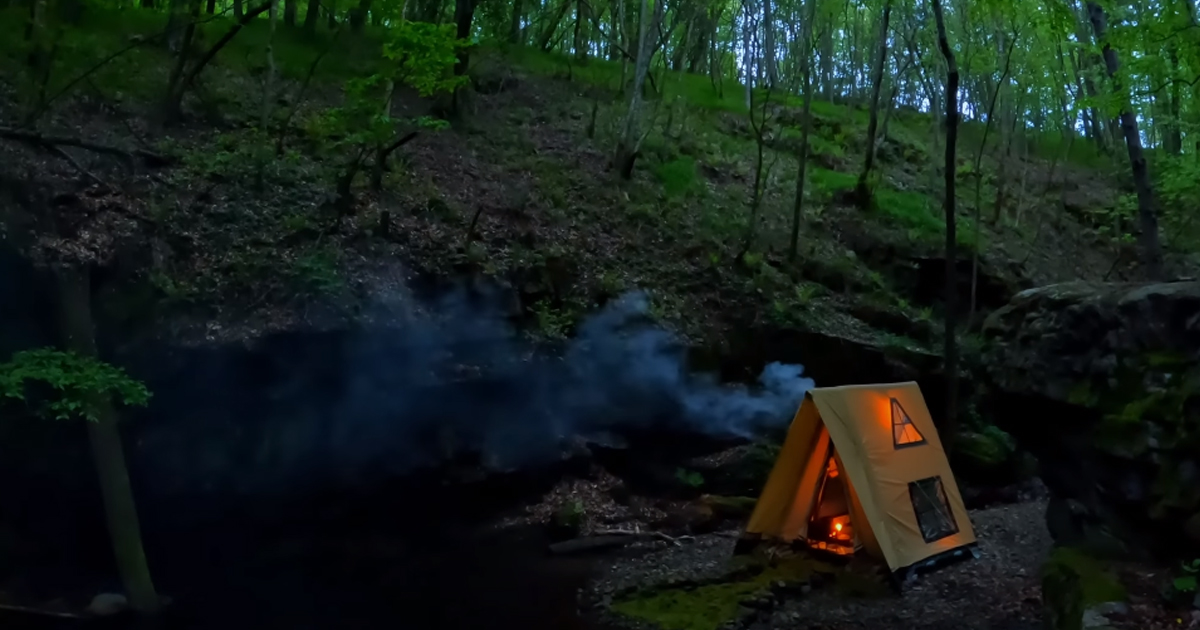
Encounters with animals were scary and dangerous, but they could also be avoided with proper precautions.
- The food was kept in airtight containers and out of reach of pets.
- My vehicle or bear-proof container contained all the trash.
- I never left food unattended.
- I avoided wearing aromatic scents, such as perfumes or lotions.
Conclusion
Tent camping was safe for me because I took the proper precautions and was well-prepared before embarking on my adventure. I always remembered to check the weather forecast, secure my belongings, camp with others, store food safely, and carry protective gear that could help me in an emergency.
While camping, I was aware of allergies, poisonous plants, and the risks associated with encounters with wild animals and forest fires. Camping in a tent was fine, with the proper preparations and precautions. I had a happy camping experience.
FAQs
Is Camping Safe For Kids?
It is safe for kids to go camping as long as they follow a few basic safety precautions. Set up your campsite in a safe area and choose a well-made tent. Be sure to supervise your children near water bodies or climbing trees.
